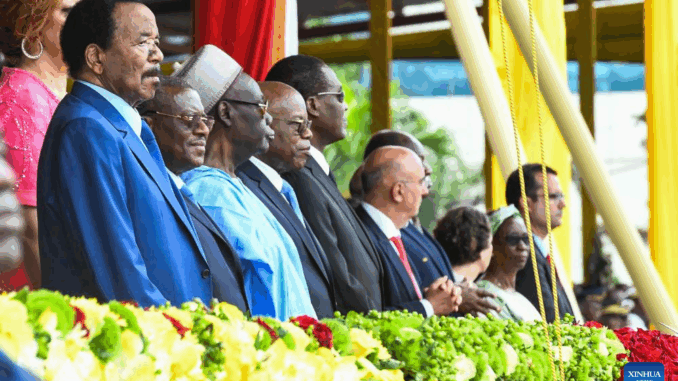
As Cameroon gears up for its 12 October presidential election, the political landscape in the Central African country is rapidly intensifying after longtime leader Paul Biya confirmed his bid for an eighth term this week.
The 92-year-old strongman’s presidential aspirations, announced through his proxy, CPDM Secretary General Jean Nkuete, sparked a wave of candidacy filings across the country. Biya’s announcement came just days after a sweeping military reshuffle that analysts interpret as a preemptive strategy to consolidate control and deter internal dissent. The changes spanned all military branches, promoting key loyalists, including leaders of the elite Rapid Intervention Battalion (BIR), signaling Biya’s intent to tighten his security grip amid growing concerns about succession and health.
Meanwhile, the opposition is mobilizing. Notable challengers include Maurice Kamto of the Cameroon Renaissance Movement, whose 2018 campaign nearly upended Biya’s dominance, and Cabral Libii of the Cameroon Party for National Reconciliation (PCRN), who is rallying younger voters seeking change. Joshua Osih of the SDF filed his candidacy in Bamenda, a symbolic gesture highlighting the party’s roots in the troubled Anglophone region. Adding diversity to the race is Patricia Hermine Tomaïno Ndam Njoya, the sole female candidate, who emphasized women’s role as “voice of peace.” With at least eight prominent figures now in the race, Cameroonians face a pivotal election marked by rising calls for democratic reform and deepening questions about the country’s political future under its aging leader.
